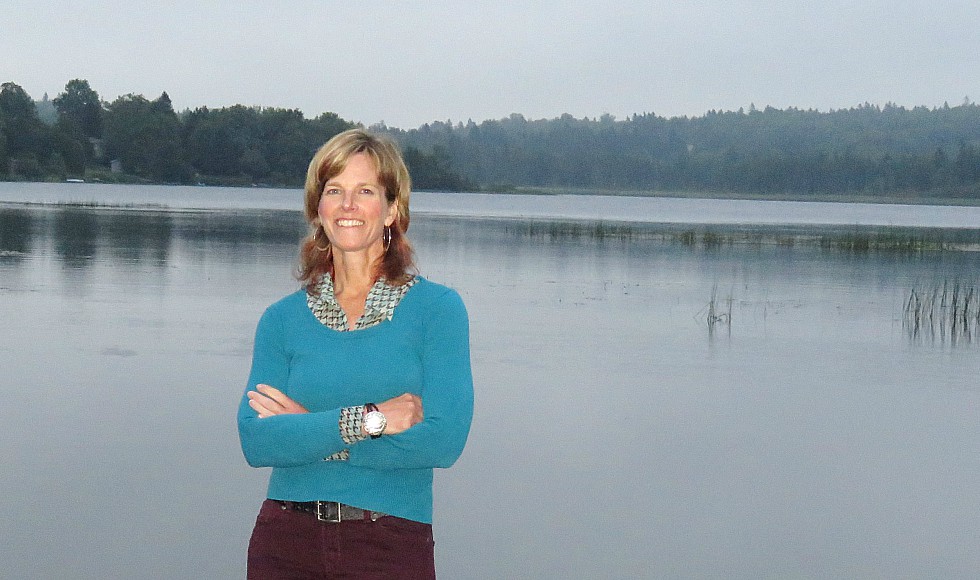Mac water expert honoured for ground-breaking research on aquatic ecosystem health

Karen Kidd, the Jarislowsky Chair in Environment and Health, has received the 2017 International Environmental Award from Stockholm-based organization, Recipharm, for her ground-breaking research looking at the impact of pharmaceuticals and other contaminants on the health of aquatic ecosystems.
“It’s an absolute honour and a surprise to receive this award – I thank Recipharm for this recognition of our work,” says Kidd whose research, conducted in Northern Ontario’s IISD Experimental Lakes Area, revealed the devastating effects of estrogens – like those found in birth control pills, and which are also present in municipal wastewater – on fish populations and on the aquatic food web as a whole.
Kidd, a professor in McMaster’s Department of Biology, and School of Geography & Earth Sciences, led the decade-long, whole-lake experiment which found that when the synthetic estrogen used in the pill was added to the lake water, male fathead minnows became feminized – in some cases, even developing eggs. This led to an inability to reproduce, resulting in the near collapse of the minnow population, and creating a fall-out affect that ultimately impacted the entire food web.
This research has been instrumental in generating public awareness of the environmental impacts of pharmaceuticals in wastewaters, and has raised important questions about how wastewater treatment could be improved to reduce the presence of these compounds in the effluent that flows from treatment plants into rivers and streams.
This study is part of Kidd’s broader research program which focuses on understanding the effects of human activities on aquatic systems, and looks at how contaminants, such as mercury, pesticides, industrial chemicals and other pollutants, impact the health of fish in freshwater ecosystems in Canada and abroad.
Kidd’s research program is interdisciplinary in nature – drawing on a number of areas including toxicology, chemistry, bio-chemistry and ecology – and involves multiple partners including Fisheries and Oceans Canada, Environment and Climate Change Canada, several universities and the Canadian Water Network.
“The combination of amazing research facilities like the IISD Experimental Lakes Area, considerable support from the federal government and private sector, and an outstanding group of collaborators have enabled us to advance the knowledge on how widely-used chemicals, including pharmaceuticals, are impacting the health and sustainability of aquatic systems,” says Kidd.
“My experiences have absolutely reinforced the idea that collectively we can accomplish so much more towards solving pressing environmental issues and minimizing our impacts on water quality and aquatic ecosystems,” she adds.
Kidd is currently involved in range of research projects which include looking at how municipal wastewaters in Hamilton and Dundas are affecting fish communities; the impacts of forest harvesting on stream health; the aquatic health implications of east coast salmon farming; and the movement of mercury and other contaminants through stream, lake and coastal food webs in Canada and abroad.
The Recipharm International Environmental Award, which is given out annually, recognizes the best in environmental practice or innovation within the pharmaceutical and health care industries, or in academia. The prize ceremony will take place in Stockholm in September 2018.

